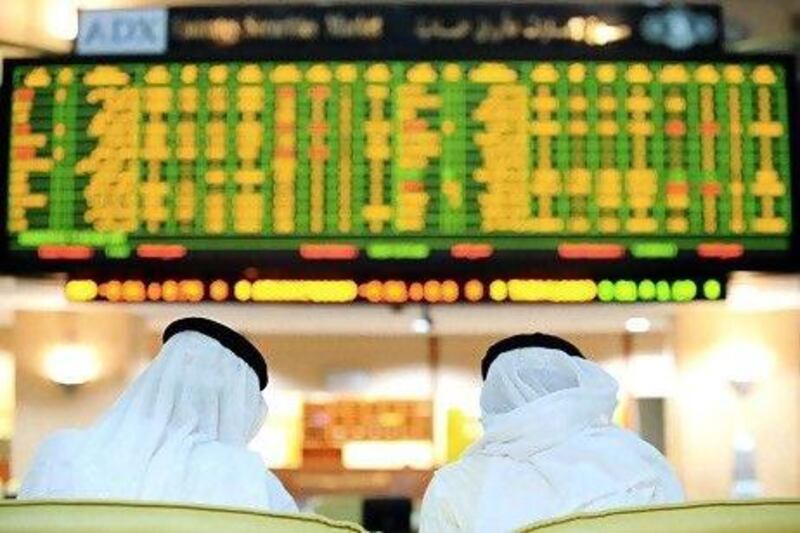Wadah Al Taha remembers a time when half a trillion dirhams traded on the Dubai bourse.
After all, such a high figure for annual trading values - almost unthinkable today - was as recent as 2005. But those were different times.
As foreign investors gradually return to trade UAE stocks, brokers and traders say it is unlikely that they will develop the same appetite for local companies at the peak of the bubble.
"We should not look at the past as a standard benchmark," said Mr Al Taha, the chief investment officer at Al Zarooni Group in Dubai. "The standards of operating were completely different. There wasn't enough regulation. It was a casino market."
The trading limit for brokerages was Dh300 million (US$81.6m) a day, as stipulated by the regulator.
"In those days, we could make Dh10m in profit in one day," Mr Al Taha said.
That all changed after the global financial crisis wiped the values of assets and credit markets froze, dampening investment appetite for local stocks.
"Today, brokerages strive to trade Dh300m for the month just to break even and survive," he said.
After years marked by renegotiated debt payments and the Arab Spring, the Emirates' stock markets are beginning to show signs of recovery and a revival in investor interest.
The Abu Dhabi Securities Exchange General Index is up 10.4 per cent since January, and the Dubai Financial Market General Index is up 22.2 per cent in the same period.
A number of much-awaited regulations were introduced this year by the market watchdog, helping to boost optimism further, including legislations governing margin trading, short-selling, borrowing and lending. The Securities and Commodities Authority also developed a comprehensive framework to govern the activities of the fund management industry, something that did not exist before.
"We are building the market now. There are pillars that did not exist before - legislations, regulations, minimum standards of corporate governance. We are moving towards the international standards of an emerging market," said Mr Al Taha.
So far this year, net fund inflows into Dubai's listed equities from overseas have totalled $122m, compared to $92m for Abu Dhabi, according to monthly aggregates from Deutsche Bank.
"Foreign investors definitely see that growth has been steady in Abu Dhabi, with the strategic plan moving ahead alongside huge support from the Government for projects," Mr Al Taha said. "Credit ratings for Abu Dhabi are more positive compared with the wider Arabian Gulf. The budget is increasing, with GDP up [about] 7 per cent last year. These factors are all promising for foreign investors."
But the figures remain minuscule compared to the billions of dollars invested by hedge funds and institutional investors from abroad during the stock-market boom.
"Back then, liquidity was high internationally and regionally, which helped fuel the performance, but the factors today are different," said Marwan Shurrab, the vice president and chief trader at asset-manager Gulfmena Investments in Dubai. "Liquidity is tighter, yes it may be cheaper, but it's not necessarily available for everyone."
The UAE is classified as a frontier market by the index provider MSCI, which has declined to upgrade the country to emerging-market status several times in recent years during its semi annual reviews.
"The current uncertainty from Europe and fears of a slowdown in China and the subsequent slowdown in the global economy all weighs on the appetite from foreign investors to put their money in what is considered a riskier market," Mr Shurrab said. "People are looking at safe havens, defensive investments, which typically for international investors, would be investing in defensive securities in their local markets."
* additional reporting by Gregor Stuart Hunter





